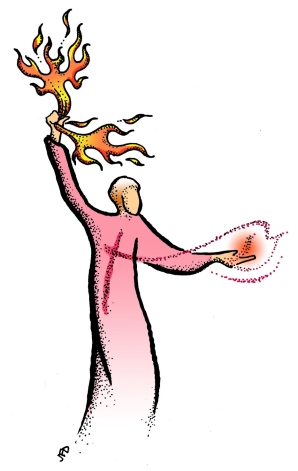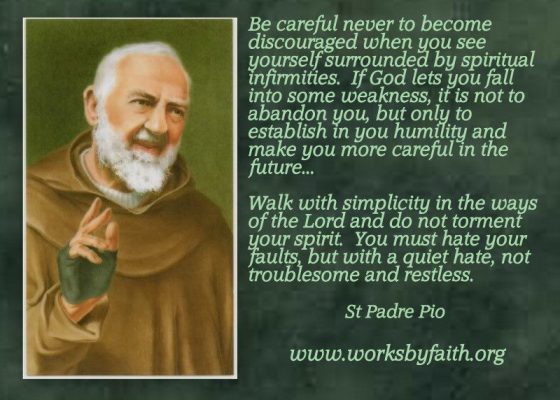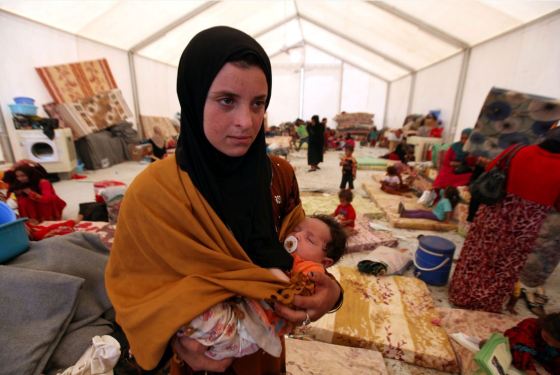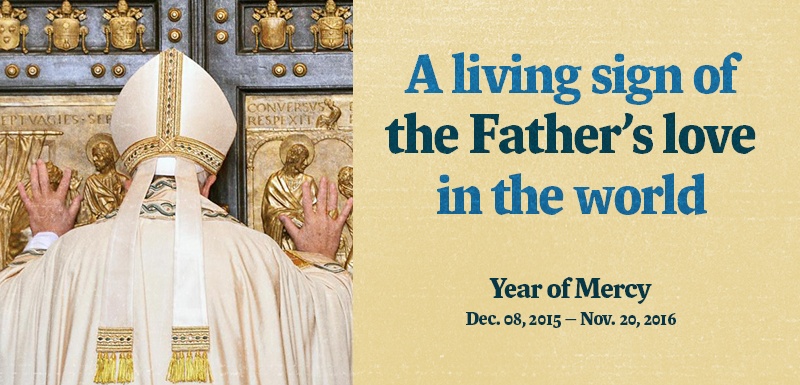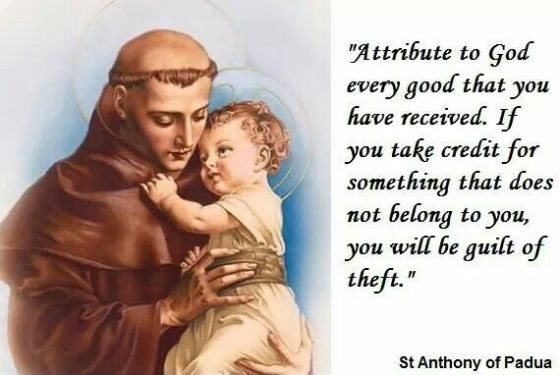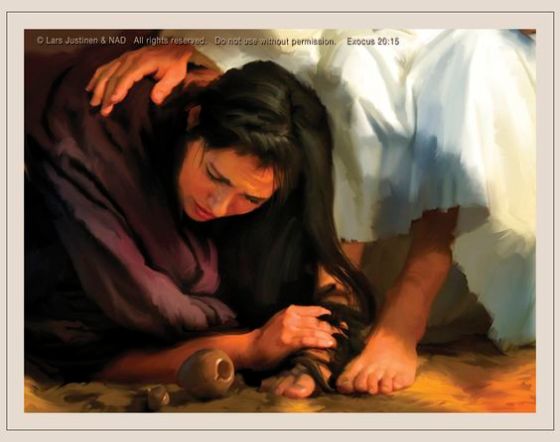The blog is the current happenings at the Monastery of Saint Clare Chesterfield, NJ
Thursday, June 30, 2016
Wednesday, June 29, 2016
Tuesday, June 28, 2016
St. Irenaeus June 28 "The Glory of God is the human person fully alive
Irenaeus
Bishop
Irenaeus, also referred to as Saint Irenaeus, was Bishop of Lugdunum in Gaul, then a part of the Roman Empire. He was an early Church Father and apologist, and his writings were formative in the early development of Christian theology.Wikipedia
Born: 130 AD, Smyrna, Turkey
“The glory of God is the human person fully alive.”
― Irenaeus of Lyons
― Irenaeus of Lyons
“Error, indeed is never set forth in its naked deformity, lest, being thus exposed, it should at once be detected. But it is craftily decked out in an attractive dress, so as, by its outward form, to make it appear to the inexperienced more true than truth itself.”
― Irenaeus of Lyons
― Irenaeus of Lyons
“Error never shows itself in its naked reality, in order not to be discovered. On the contrary, it dresses elegantly, so that the unwary may be led to believe that it is more truthful than truth itself.”
― Irenaeus of Lyons
― Irenaeus of Lyons
Monday, June 27, 2016
Sunday, June 26, 2016
June 26 13th Sunday in Ordinary Time
|
| Thanks for flying with |
Saturday, June 25, 2016
June 26 Sunday's Readings
|
| Thanks for flying |
Friday, June 24, 2016
Thursday, June 23, 2016
Wednesday, June 22, 2016
St. Thomas More June 22
"The King's good servant, but God's first."1
Thomas More was born in Milk Street, London on February 7, 1478, son of Sir John More, a prominent judge. He was educated at St Anthony's School in London. As a youth he served as a page in the household of Archbishop Morton, who anticipated More would become a "marvellous man."1 More went on to study at Oxford underThomas Linacre and William Grocyn. During this time, he wrote comedies and studied Greek and Latin literature. One of his first works was an English translation of a Latin biography of the Italian humanist Pico della Mirandola. It was printed by Wynkyn de Worde in 1510.
Around 1494 More returned to London to study law, was admitted to Lincoln's Inn in 1496, and became a barrister in 1501. Yet More did not automatically follow in his father's footsteps. He was torn between a monastic calling and a life of civil service. While at Lincoln's Inn, he determined to become a monk and subjected himself to the discipline of the Carthusians, living at a nearby monastery and taking part of the monastic life. The prayer, fasting, and penance habits stayed with him for the rest of his life. More's desire for monasticism was finally overcome by his sense of duty to serve his country in the field of politics. He entered Parliament in 1504, and married for the first time in 1504 or 1505, to Jane Colt.2 They had four children: Margaret, Elizabeth, Cicely, and John. More became a close friend with Desiderius Erasmus during the latter's first visit to England in 1499. It was the beginning of a lifelong friendship and correspondence. They produced Latin translations of Lucian's works, printed at Paris in 1506, during Erasmus' second visit. On Erasmus' third visit, in 1509, he wrote Encomium Moriae, or Praise of Folly, (1509), dedicating it to More. One of More's first acts in Parliament had been to urge a decrease in a proposed appropriation for King Henry VII. In revenge, the King had imprisoned More's father and not released him until a fine was paid and More himself had withdrawn from public life. After the death of the King in 1509, More became active once more. In 1510, he was appointed one of the two under-sheriffs of London. In this capacity, he gained a reputation for being impartial, and a patron to the poor. In 1511, More's first wife died in childbirth. More soon married again, to Alice Middleton. They did not have children. During the next decade, More attracted the attention of King Henry VIII. In 1515 he accompanied a delegation to Flanders to help clear disputes about the wool trade.Utopia opens with a reference to this very delegation. More was also instrumental in quelling a 1517 London uprising against foreigners, portrayed in the play Sir Thomas More, possibly by Shakespeare. More accompanied the King and court to the Field of the Cloth of Gold. In 1518 he became a member of the Privy Council, and was knighted in 1521. More helped Henry VIII in writing his Defence of the Seven Sacraments, a repudiation of Luther, and wrote an answer to Luther's reply under a pseudonym. More had garnered Henry's favor, and was made Speaker of the House of Commons in 1523 and Chancellor of the Duchy of Lancaster in 1525. As Speaker, More helped establish the parliamentary privilege of free speech. He refused to endorse King Henry VIII's plan to divorce Katherine of Aragón (1527). Nevertheless, after the fall of Thomas Wolsey in 1529, More became Lord Chancellor, the first layman yet to hold the post. While his work in the law courts was exemplary, his fall came quickly. He resigned in 1532, citing ill health, but the reason was probably his disapproval of Henry's stance toward the church. He refused to attend the coronation of Anne Boleyn in June 1533, a matter which did not escape the King's notice. In 1534 he was one of the people accused of complicity with Elizabeth Barton, the nun of Kent who opposed Henry's break with Rome, but was not attainted due to protection from the Lords who refused to pass the bill until More's name was off the list of names.3 In April, 1534, More refused to swear to the Act of Succession and the Oath of Supremacy, and was committed to the Tower of London on April 17. More was found guilty of treason and was beheaded alongside Bishop Fisher on July 6, 1535. More's final words on the scaffold were: "The King's good servant, but God's First." More was beatified in 1886 and canonized by the Catholic Church as a saint by Pope Pius XI in 1935. 1. Last words on the scaffold, 1535, according to Paris Newsletter, August 4, 1535: "qu'il mouroit son bon serviteur et de Dieu premierement." 2. Ackroyd, Peter. The Life of Thomas More. New York: Anchor Books., 1999. 3. The Cambridge Guide to Literature in English. Ian Ousby, Ed. Cambridge, Cambridge University Press, 1998. Other local biographical resources: Bibliography: Ackroyd, Peter. The Life of Thomas More. (1998) Fox, Alistair. Thomas More: History and Providence. (1983) Fox, Alistair. Utopia: An Elusive Vision. (1992) Logan, George M. The Meaning of More's Utopia (1983) Marius, Richard. Thomas More: A Biography (1984) Pineas, Rainer. Thomas More and Tudor Polemics (1968) Reynolds E. E. Sir Thomas More (1965) Reynolds E. E. Thomas More and Erasmus. (1965) Reynolds E. E. The Field Is Won: The Life and Death of Saint Thomas More. (1968) Wegemer, Gerard B. Thomas More : A Portrait of Courage. (1995) Wegemer, Gerard B. Thomas More on Statesmanship. (1996) Article Citation: Jokinen, Anniina. "The Life of Sir Thomas More." Luminarium. 6 July 2012. [Date you accessed this article]. <http://www.luminarium.org/renlit/morebio.htm>
Site copyright ©1996-2012 Anniina Jokinen. All Rights Reserved. Created by Anniina Jokinen on May 31, 1996. Last updated on July 6, 2012. |
|
Tuesday, June 21, 2016
Monday, June 20, 2016
June 20 World Refugee Day
|
Saturday, June 18, 2016
For Sunday June 19th Father's Day
|
| Thanks for flying with |
Thursday, June 16, 2016
Father's Day June 19

Happy Father's Day!
On Sunday, we honor our dads and all the special men in our lives. We honor the strength, love, and courage we receive from them. And we pray that they draw strength from God's grace at work in their lives.
Wednesday, June 15, 2016
Tuesday, June 14, 2016
Monday, June 13, 2016
Saturday, June 11, 2016
Sunday June 12 Readings for the Sunday
THE LORD’S KINGDOM DOES NOT CONSIST OF PEOPLE WHO HAVE NEVER SINNED, BUT ......
(A biblical reflection on the 11th Sunday in Ordinary Time [Year C] – June 12, 2016)
Gospel Reading: Luke 7:36-8:3 (Luke 7:36-50)
First Reading: 2Samuel 12:7-10,13; Psalms: Psalm 32:1-2,5,7,11; Second Reading: Galatians 2:16,19-21
The Scripture Text
One of the Pharisees asked Him to eat with Him, and He went into the Pharisee’s house, and sat at table. And behold, a woman of the city, who was a sinner, when she learned that He was sitting at table in the Pharisee’s house, brought an alabaster flask of ointment, and standing behind Him at His feet, and anointed them with the ointment. Now when the Pharisee who had invited Him saw it, he said to himself, “If this Man were a prophet, He would have known who and what sort of woman this is who is touching Him, for she is a sinner.” And Jesus answering said to him, “Simon, I have something to say to you.” And He answered, “What is it, Teacher?” “A certain creditor had two debtors; one owed five hundred denarii, and the other fifty. When they could not pay, he forgave them both. Now which of them will love him more? Simon answered, “The one, I suppose, to whom he forgave more. And He said to him, “You have judged rightly.” Then turning toward the woman He said to Simon, “Do you see this woman? I entered your house, you gave me no water for My feet, but she has wet My feet with her tears and wiped them with her hair. You gave Me no kiss, but from the time I came in she has not ceased to kiss My feet. You did not anoint My head with oil, but she has anointed My feet with ointment. Therefore I tell you, her sins, which are many, are forgiven, for she loved much; but he who is forgiven little, loves little.” And He said to her, “Your sins are forgiven.” Then those who were at table with Him began to say among themselves, “Who is this, who even forgives sins?” And He said to the woman, “Your faith has saved you; go in peace.” (Luke 7:36-50)
Forgiveness is the subject of today’s readings from Scripture. These readings are stories of “forgiveness received”, not “forgiveness refused).
The Old Testament reading tells how Nathan confronts King David with his sins of adultery and murder. David acknowledges his guilt and is then forgiven by God.
In the Gospel, a woman – the town sinner, so to speak – dares to approach Jesus at dinner. With profound and sincere gestures she acts out her contrition. After telling the host Simon a short parable about forgiveness and gratitude, Jesus tells the woman that her many sins are forgiven because of her faith and love.
These biblical texts abound with contrasts. First, King David acts like a villain, but with God’s forgiveness he recovers his lost virtue. His fall occasions a greater fidelity. Second, in the Gospel, Simon the Pharisee sees himself as a self-styled saint, but in fact he is a sinner who needs to be forgiven for pride and a sense of superiority. In the eyes of all the townsfolk, the woman is one of their worst sinners – but under the gaze of the Lord, she is also one of their greatest lovers. Third, according to His parable, Jesus implies that both Simon and the woman are forgiven – but while the woman accepts the gifts, Simon does not.
Fourth, as the host, Simon should have shown more hospitality to our Lord who was his guest. By contrast the repentant woman, who was a complete stranger to Jesus, overwhelms Him with affection. Simon seems to hold back and never gets close to Jesus, or to anyone else for that matter. The woman is not afraid to express her feelings and outdoes herself in repentance, just s she had outdone herself in sinfulness before.
Fifth, the use of oil is pivotal to the story. Simon withheld from Jesus an anointing with even a little ordinary olive oil. The sinful woman literally poured out on Jesus a whole vase of expensive perfumed oil – a symbol of both the vastness of her love and of the forgiveness she received.
Dear Sisters and Brothers, how do we face our own sinfulness and accept forgiveness? Unless we honestly confess our sins we miss out on the miracle of God’s mercy, the way Simon the Pharisee did. Unless we open our hearts to accept the gift of forgiveness from God, from others and ourselves, we can waste a lifetime. But if we are man enough like David or woman enough like the penitent woman in the Gospel to confess our sins and seek forgiveness, make guilt give way to gladness and change dead ends into new beginnings.
The Lord’s Kingdom does not consist of people who have never sinned, but of people who have sinned and been forgiven; of people who have failed, even grievously, yet found grace. So we don’t have to pretend to be perfect as Simon did. All we have to do is place ourselves at the feet of Jesus s the penitent woman did and experience the pardon and peace of His unconditional love.
Prayer: Heavenly Father, with David and the penitent woman in today’s
readings, we thank You for the forgiveness of Christ and our faith in the Son of God who loved us all and had sacrificed Himself for our sake. Almighty God, our hope and our strength, without You we falter. By Your Holy Spirit, help us to follow Christ and to live as His faithful disciples according to Your will. Amen.
Jakarta, 11th of June 2016
A Christian Pilgrim
achristianpilgrim | June 11, 2016 at 8:31 am | Tags: FORGIVENESS, JESUS CHRIST, PENITENT WOMEN | Categories: BIBLICAL REFLECTIONS 2016 | URL: http://wp.me/p1055h-3n7
|
Subscribe to:
Comments (Atom)
![HARI MINGGU BIASA XIII [TAHUN C]](https://achristianpilgrim.files.wordpress.com/2016/06/hari-minggu-biasa-xiii-tahun-c.gif?w=480)
